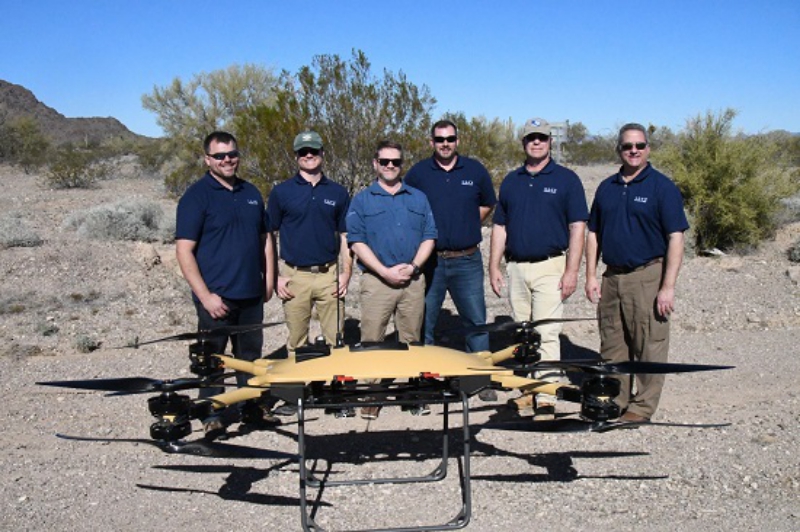The Dept of the US Navy successfully completed a tactical resupply unmanned aircraft system (UAS) fly-off competition Jan. 27-31 at Yuma Proving Ground, Arizona, to evaluate existing small UAS and their autonomous aerial delivery capability for the Marine Corps.
Six vendors competed for first, second and third place based on a series of criteria and operational flights. SURVICE Engineering will receive $100,000 for first place; Chartis Federal will receive $75,000 for second; and Autonodyne will take home $50,000. Other participants included AirBuoyant, Bell Textron and Pacific Aerospace Consulting.
“We learned a lot about where industry is in terms of design maturity and what our requirements need to be,” said Col. John Neville, Navy and Marine Corps Small Tactical UAS (PMA-263) program manager, who oversees the TRUAS small Unmanned Logistics Support – Air effort. “It was great to have Marines, our acquisition leads and industry in one place to really get a sense of where we need to be and what the next step is for the TRUAS effort.”
The project is designed to seek an autonomous unmanned system that can transport at least 60 pounds of cargo in various configurations commonly found in Marine company/platoon/squad resupply operations (ex: 5-gallon water can, ammo can/case, Meals-Ready-to-Eat (MRE) case) through a 10-kilometer radius.
The program office’s next step is to complete the analysis of the companies’ systems and potentially use an Other Transaction Agreement (OTA) to procure prototypes within fiscal year 2020, said TRUAS Team Lead Christina Petrow. OTAs are sometimes used within the DoD to carry out prototype, research and production projects.
If the TRUAS demonstration prototypes meet the fleet’s requirements, the Marine Corps could begin conducting field user evaluation on the prototypes as early as FY2021, she said.
“The fly-off prize challenge has been a great rapid acquisition effort that allowed us to evaluate the existing technologies within a short time period,” Petrow said. “We have a better sense of what is available, affordable and viable for the Marine Corps.”
Innovation and Modernization Patuxent River (IMPAX) assisted PMA-263 with the ULS-A prize challenge. IMPAX, Naval Air Warfare Center Aircraft Division’s partnership intermediary with Georgia Tech Research Institute, was designed to accelerate the “spin-in” of technology from industry to the warfighter.
Source: Press Release

